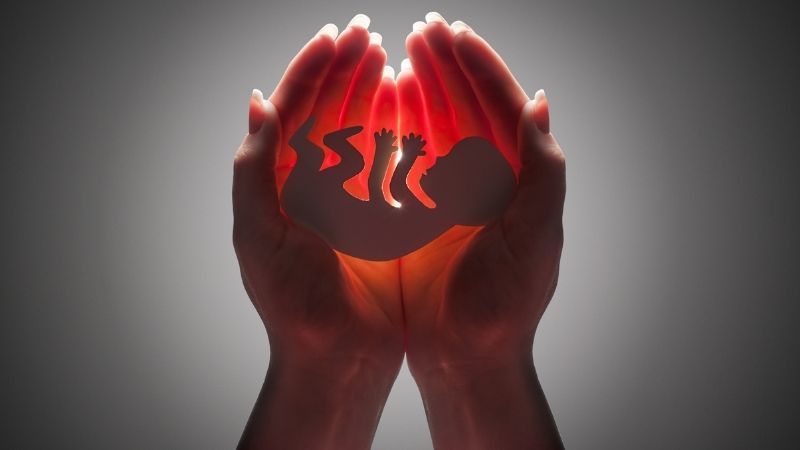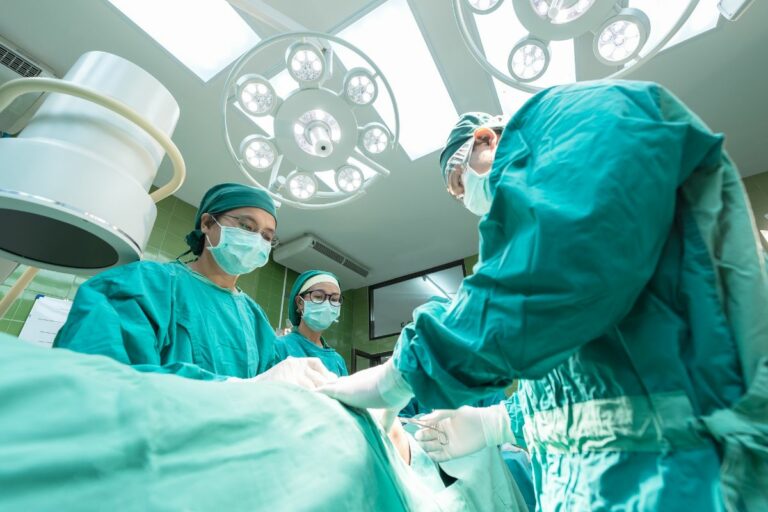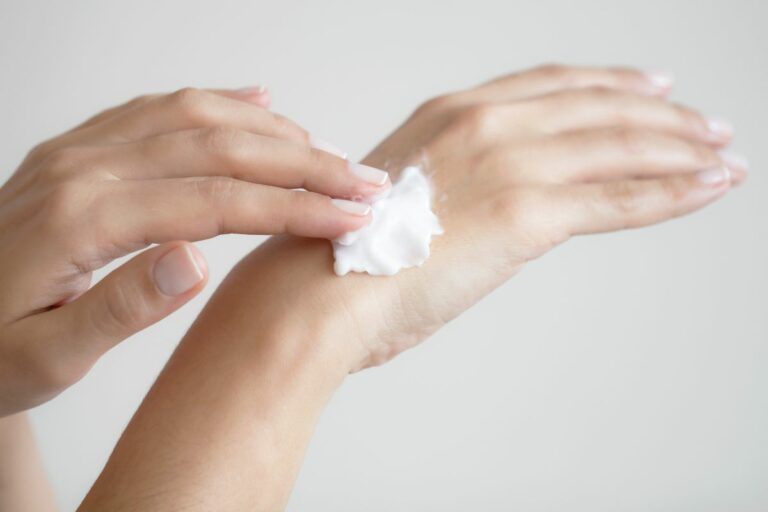Can You Wear Perfume After Embryo Transfer?

An embryo transfer is critically the last stage of an IVF process where the embryologist places the embryo (fertilized egg) into the woman’s uterus. After the embryo transfer, the doctor and the woman have to wait for the next seven days to get the results of a successful pregnancy. However, these seven days are considered very critical for the patients (women), leaving them to wonder, “can I wear perfume after the embryo transfer?”
As perfumes, deodorants, and colonies are harmful to embryos; doctors recommend not to wear them after embryo transfer. These toxic substances stay in the air and can make contact with the embryos and create issues in the process of fertilization. The chemicals present in perfumes can disrupt the hormonal balance, adversely impact your fertility, and build up in the breast milk after you get pregnant
So, the lesser chances are that perfume may crush your hope of becoming pregnant. Meanwhile, it has a high potential to get stored in your breast milk after pregnancy and affect your newborn’s health. Both are completely against what the patient is trying to achieve, so it is highly recommended to avoid perfumes after Embryo transfer!
In this article..
- Why Can’t You Wear Perfume After Embryo Transfer
- What’s In A Perfume Smell?
- Chemicals That Make Things Worse For Women After Embryo Transfer
- Why Perfume Impacts Women After Embryo Transfer
- Men Should Be Careful With Perfumes After Their Lady’s Embryo Transfer Too!
- Natural Perfumes That May or May Not Be Suitable
- Frequently Asked Questions –
- Final Words
Why Can’t You Wear Perfume After Embryo Transfer
The time has come to reconsider your signature scent. Beauty products like perfume consist of synthetic fragrances, which expose you to chemicals. It may adversely impact fertility, disrupt the hormone levels, and accumulate in your breast milk during pregnancy. This has been claimed after thorough research by Alexandra Scanton, director at Women’s Voices for the Earth.
After an embryo transfer, the doctor strongly recommends avoiding products consisting of synthetic musk and phthalates. However, Scanton wants every woman under IVF treatment to stay alert. That’s because product labels barely enlist the names of fragrance ingredients. So, the best way to avoid these chemicals is to be fragrance-free for a while.
What’s In A Perfume Smell?
After your embryo transfer, you may be trying to avoid using personal care products and plastics, which consist of EDCs or endocrine-disrupting chemicals. If so, you’re doing a great job. However, if you’re still using products composed of perfume or fragrance, you’re most likely re encountering EDCs. How so? Continue reading.
There’s a loophole in FDA’s labeling procedure. Several companies take advantage of it and list only “perfume” or “fragrance” on the label without revealing what chemicals they’re composed of. Although it was done to protect trademark secrets, companies use it to hide the name of chemicals they use to make cleaning and beauty products.
Chemicals That Make Things Worse For Women After Embryo Transfer
Some chemicals hidden in fragrance are:
- Phthalates: They are commonly found chemicals in perfumes that make the fragrance “stick” and make the product more flexible.
- Oxynols: These are great for perfumes as they get to spread and blend easily.
Why Perfume Impacts Women After Embryo Transfer
Although these ingredients are reasonable enough, it’s proven that they come with downsides for women who are trying to conceive or who are already pregnant. The primary reason behind it is that chemicals like phthalates disrupt the hormone balance.
Disrupted Hormonal Balance
If there’s a disruption in your hormone balance, the required hormone messages go unsent to the place where they need to go. They don’t go in the right amounts and lead to a disruption in estrogen action, thyroid function, and ovulation.
How do you determine whether these hormones are affected or not? If you lose hair, gain or lose weight, have cold feet or hands, or feel tired all the time, you may have thyroid dysfunction. Do you experience painful periods, irregular cycles, or severe PMS? If so, you may have an imbalance of estrogen and progesterone in your body, which we call estrogen dominance.
Chemicals like phthalates found in your perfume are harmful to the ovaries. They impact your fertility and destroy follicles during their development phase. Perfumes with phthalates also impact the ovaries’ ability of estrogen and progesterone production, further affecting the hormonal balance in your body.
Infertility and Inflammation
The chemicals found in perfume are inflammatory in nature. According to stats, women use around 12 unique products every day, which keeps them exposed to an average of 168 chemicals in their bodies. If it happens on a single day, imagine what would happen over a year or a decade!
Every spray of perfume with synthetic chemicals like phthalates elevates the risk of developing diabetes and hormonal imbalance. During pregnancy after IVF treatment, inflammation and hormonal disruption due to fragrances can elevate the risk of low birth rate, preeclampsia, and congenital disabilities.
Unfair Burden
When compared to men, women use more personal care products on average. It means they stay highly exposed to the chemical toxins present in fragrance. This high exposure and the physical demands of pregnancy show why women are more prone to autoimmune conditions than men.
Having an autoimmune condition is a significant health issue, especially if it’s Hashimoto’s Thyroiditis. If left uncontrolled and untreated, it will result in lower IQ scores in newborns, enhanced risk of fertility, and a high risk of miscarriage.
Men Should Be Careful With Perfumes After Their Lady’s Embryo Transfer Too!
Perfumes can affect men’s fertility too. It can disrupt the men’s ability to generate sperm, resulting in reduced sperm count. If you and your lady get exposed to high concentrations of chemicals present in perfumes while undergoing IVF treatments, the chances are that you may end up with a miscarriage or failed IVF.
Natural Perfumes That May or May Not Be Suitable
Here are a few natural perfumes that may be suitable for use after embryo transfer. However, it’s STRICTLY RECOMMENDED to consult your embryologist about these products before using any of them.
| Natural Perfumes | Phthalate-Free | Paraben-Free | Price |
|---|---|---|---|
| Ellis Brooklyn Myth Eau de Parfum | Yes | Yes | $105-$110 |
| Atelier Cologne Perfume | Yes | Yes | $118.99 |
| Edens Garden Natural Essential Oil Perfume | Yes | Yes | $39.95 |
| Guess Bella Vita Eau de Parfum | Yes | Yes | $50.99 |
Frequently Asked Questions –
How long do I need to avoid wearing perfume after the embryo transfer?
Typically, the doctor recommends avoiding wearing perfume on the day of the embryo transfer. However, for higher chances of getting pregnant, it’s best not to wear them for the next week. After getting pregnant, even if you do want to use perfume, use one of the natural, luxurious perfumes from the list above.
Can I wear natural perfume after the embryo transfer?
After your embryo transfer, stay away from perfume for at least the next seven days until you get pregnant. After getting pregnant, consult the doctor to know whether you can wear natural, luxurious, and branded perfumes or not.
Final Words
Although handling the removal of perfume from your lifestyle can be overwhelming, you must do it for yourself and your future baby. Therefore, try to give more priority to progress than perfection. Hopefully, we have been able to provide you with practical, neutral, and useful insights into the topic.









